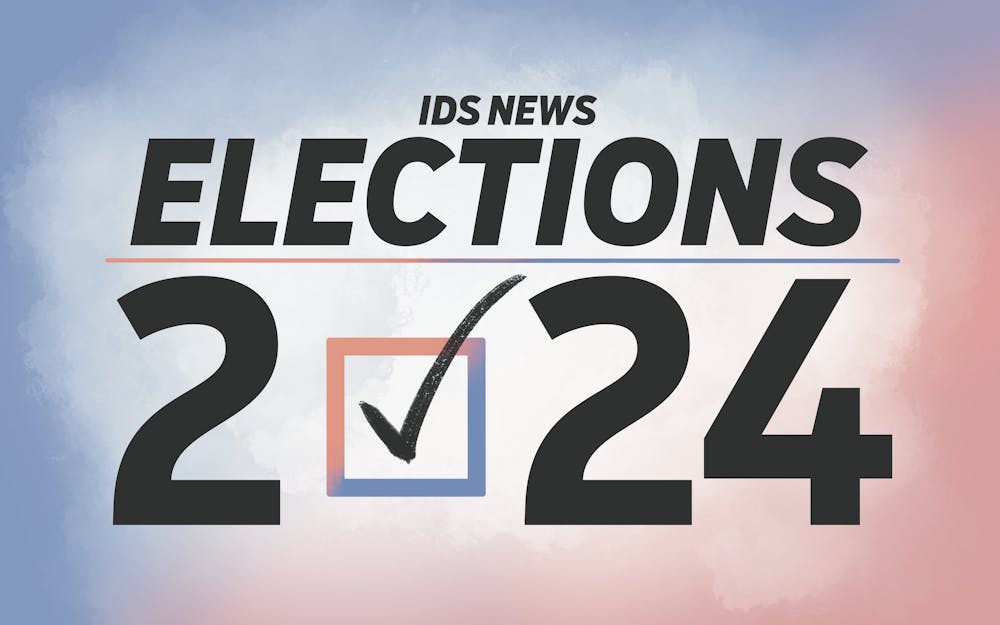As Indiana’s May 7 primaries grow closer, Emerson College Polling released some of the first nonpartisan polling of the races. Released March 7, the poll’s crosstabs provide insight to the state’s politics going into the 2024 general election cycle.
The poll surveyed 1,000 individuals from March 2-5 and has a margin of error of +/-4.2%. For the Republican primary, 526 individuals were polled.
Here’s some takeaways from the poll’s results:
Republican gubernatorial primary:
In the Republican primary May 7, voters will select one of six candidates to run for governor in November — Mike Braun, Suzanne Crouch, Brad Chambers, Eric Doden, Curtis Hill and Jaime Reitenour.
U.S. Sen. Mike Braun holds a commanding lead of over 20% in the Republican gubernatorial primary, though there are many undecided voters. However, Braun could potentially pick up many in that camp, as the crosstabs show many undecided voters breaking for him on several major issues.
On crime and public safety, 54% of respondents said they trusted Braun to do the best job out of all candidates. On taxes and the economy, 55% of respondents said they trusted him most. All other candidates received between 2-15% of respondents on these issues.
Braun's support among respondents lowered in education, with 47% of respondents saying they trusted him most to handle the issue. Lt. Gov. Suzanne Crouch gained support on her prospective handling of education, with 22% ranking her the best on the issue.
However, Braun had the most support from undecided voters — 38.2% who said they trusted Braun the most on education, compared to 25.4% who ranked Crouch the highest. These numbers suggest that gubernatorial candidates besides Braun will have high cliffs to climb, even on issues where they have relatively more support.
The coalitions between candidates also show small divides. Of respondents supporting Braun, 92.6% said they would back Donald Trump. Just 5% said they supported Nikki Haley in the Republican presidential primary (the poll was conducted before Haley dropped out).
But of Crouch’s supporters, 68.6% said they would support Trump and 31.6% said they would support Haley. Among all respondents, 78% said they would support Trump while 14% supported Haley. Crouch’s supporters were also more likely to support Joe Biden in the general election, with 21% saying they would vote for him. Only one of Mike Braun’s supporters, 0.6% of the total, said they would vote for Biden.
This supports recent polling from Quinnipiac University, asserting roughly 37% of Haley primary voters would vote for Biden in the general.
On the issues, a majority of respondents ranked the economy as their most important issue. However, Braun’s supporters were more likely to put immigration as their most important issue — 24.3% ranked it as their top priority.
Presidential race in Indiana:
In the general election, Trump holds a large lead over Biden. But deeper inside the data, important coalitional shifts are apparent in race and age.
White respondents were solid in their support for Trump, with 58.8% of voters saying they would vote for him. Just 30.9% said they would vote for Biden.
Black voters appeared to drift away from Democrats compared to recent elections, with 22.2% of Black respondents saying they would vote for Trump. Only 8% of Black voters in the 2020 general election backed Trump, while 92% voted for Biden. In this poll, 53.8% said they would vote for Biden, while 24% were undecided.
Asian voters and those who marked “other or multiple races” drifted heavily to Trump, much more so than in the 2020 election. However, this could have resulted from a low number of respondents — only 18 Asian voters and 14 who marked “other or multiple races” were polled.
Age shows a skewed bimodal distribution for Biden’s support. Younger voters tend to support the current president more, with Biden narrowly winning voters aged 18-29. Voters aged 18-39 also were more likely to be undecided.
Trump’s support accelerates above 30, with him winning all age groups above. However, voters over 60 were more likely to support Biden than those aged 30-59, showing a divergence from prior years.
The presidential vote was heavily correlated with age in 2016, with Trump’s support increasing with older voters. This trend showed some signs of breaking in 2020, with voters over 65 supporting Biden slightly more than voters aged 50-64.
Notes on Emerson College Polling
Emerson College Polling is the ninth-best rated pollster in polling aggregate FiveThirtyEight’s rankings. The poll’s sampling by age, 2020 vote, race and education levels were in-line with Indiana’s overall data.
In 2020, its last poll showed Biden receiving 50% and Trump 45% of voters. In reality, Biden received 51.3% and Trump 46.8%. Though both gained support from undecided voters, the margin of victory was similar to the poll, 5% to 4.5% in reality.



